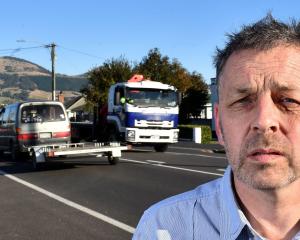Dunedin Hospital's ear, nose and throat department expects to retain its full complement of trainee specialists, allaying fears its training accreditation could be downgraded by the professional college that had it on ''probation''.
Under the Official Information Act, the Southern District Health Board has released information about an inspection carried out last month.
''Verbal feedback'' suggested the Royal Australasian College of Surgeons would tick off the training programme for another three years - but nothing was confirmed.
The ENT department had been described as on ''probation'' in a March 16 letter from clinical leader Martyn Fields to chief executive Carole Heatly.
''If we are unable to show a significant increase in the appropriate types of surgical experience, we will lose one of our trainee positions,'' Mr Fields' letter said.
Losing one of the two trainee positions would cause a staffing shortage.
Mr Fields' letter had also disclosed the department was shunting more than a quarter of patients back to their GPs untreated.
After a report on the issue in the ODT last month, a few ENT patients emailed unhappy about a lack of treatment, but none would speak publicly.
The ODT sought more information, and in its OIA response this week the board said it was not keeping track of the patients being sent on their way.
''Southern District Health Board does not record the number of patients that are returned to GP care that would benefit from surgery.
''The data reported by Martyn Fields in his letter relates to his estimated snapshot of one month of data.''
Nationally, there is growing attention focused on so-called ''unmet need'' - patients sent away without treatment - and the Ministry of Health is working with health boards to try to measure it.
Health Minister Dr Jonathan Coleman, in a press release this week, said the project was on track and the first results - which will allow boards to be compared - would be released next year.
''It is a significant undertaking to standardise the way this data is recorded by different DHBs and to understand referral outcomes.
''New Zealand will be one of a few countries to be collecting information of this kind at a national level.
''The Ministry of Health is working with DHBs to collect data in a comparable way,'' Dr Coleman said.
Last year, Dunedin Hospital's intensive care unit lost its accreditation to train specialists when it was withdrawn by the College of Intensive Care Medicine of Australia and New Zealand.












